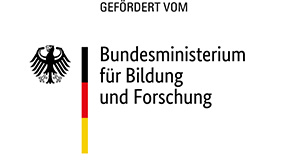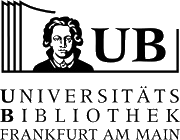Train-the-Trainer im Kontext von Fortbildungen auf dem Weg zur inklusiven Schule: Förderliche und hinderliche Aspekte aus Sicht der Moderator*innen
Train-the-trainer in the context of professional development on the way to an inclusive school: facilitating and hindering aspects from the perspective of the trainers
DOI:
https://doi.org/10.21248/qfi.148Schlagworte/Keywords
Train-the-Trainer, Multiplikator*innenqualifizierung, Fortbildung, Professionalisierung, Inklusion, Train-the-trainer, multiplier qualification, professional development, professionalization, inclusionZusammenfassung
Obwohl in Deutschland vielfach auf Train-the-Trainer (TTT)-Modelle zurückgegriffen wird, um eine ökonomische Verbreitung von Fortbildungsinhalten und gleichzeitig eine systematische Qualifizierung von Moderator*innen zu realisieren, sind Qualitätsmerkmale von TTT-Modellen, deren Wirkungsweise und Umsetzung bislang kaum erforscht. Der vorliegende Beitrag untersucht die Wahrnehmungen von 21 Moderator*innen, die in einem TTT-Modell zur Prozessbegleitung in der schulischen Inklusion qualifiziert wurden. Im Rahmen der Evaluation wurden leitfadengestützte Interviews geführt, um das Erleben der Moderator*innen hinsichtlich der eigenen Entwicklung und des Qualifizierungskonzepts sowie förderlicher und hinderlicher Aspekte des TTT-Modells zu erfassen. Die inhaltsanalytisch ausgewerteten Ergebnisse verdeutlichen ein hohes Wirksamkeitserleben der Moderator*innen und eine hohe Zufriedenheit mit dem TTT-Modell. Neben einer qualitativ hochwertigen, langfristig angelegten Qualifizierung sind aus Sicht der Moderator*innen eine enge Begleitung bei deren Fortbildungstätigkeit und eine auf die schulischen Bedingungen abgestimmte Prozessbegleitung wichtige Gelingensfaktoren. Aus den Erkenntnissen werden Konsequenzen für die Entwicklung von TTT-Konzepten unter besonderer Berücksichtigung des inklusiven Kontextes abgeleitet.
Abstract
Although in Germany train-the-trainer (TTT) models are often used to realize an efficient distribution of training content and at the same time a systematic qualification of trainers, quality characteristics of TTT models, their functioning and implementation have rarely been researched so far. This article examines the perceptions of 21 trainers who were qualified in a TTT model for accompanying processes in school inclusion. As part of the evaluation, semi-structured interviews were conducted to capture the trainers' experience of their own development and of the qualification concept as well as of the facilitating and hindering aspects of the TTT model. The results, which were examined in terms of content analysis, show that the trainers experience a high level of efficacy and a high level of satisfaction with the TTT model. In addition to a high-quality, long-term training, the trainers believe that close monitoring of their professional development activities and a process support adapted to the school conditions are important success factors. Consequences for the development of TTT concepts are derived from the findings, taking particular consideration of the inclusive context.
Downloads
Veröffentlicht
Ausgabe
Rubrik
Lizenz
Copyright (c) 2024 Tatjana Leidig, Friederike van Zadelhoff, Jule Behr, Simon Hasler, Thomas Hennemann

Dieses Werk steht unter der Lizenz Creative Commons Namensnennung - Keine Bearbeitungen 4.0 International.



